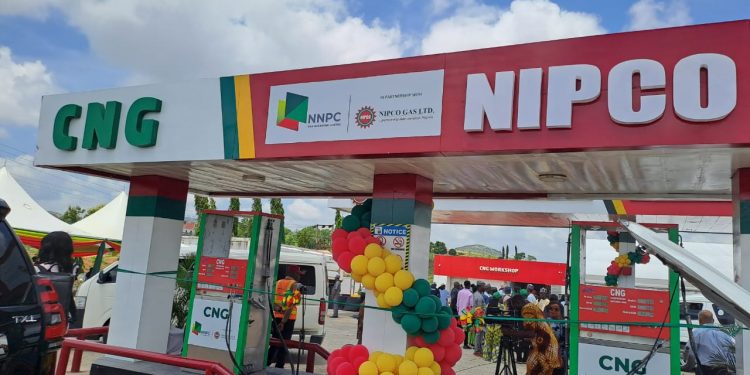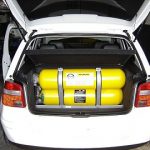In a move to mitigate high transportation costs following the removal of fuel subsidies, the Nigerian National Petroleum Company Ltd (NNPC), in partnership with NIPCO, has commissioned 12 Compressed Natural Gas (CNG) stations in Abuja and Lagos. This initiative is part of the Presidential CNG initiative aimed at expanding CNG stations across Nigeria to provide a more affordable and environmentally friendly alternative to petrol.
Key Highlights of the Initiative:
– Commissioning of CNG Stations: Six stations in Lagos and six in Abuja were inaugurated by the Minister of State for Petroleum Resources (Gas), Ekperikpe Ekpo.
– Strategic Partnership: NNPC and NIPCO Gas plan to construct 35 CNG stations nationwide, catering to a wide range of vehicles including tricycles, cars, buses, and heavy transport vehicles.
– Economic Context: The removal of petrol subsidies by President Bola Tinubu led to a significant increase in fuel prices from N197 per litre to N617 per litre, raising transportation costs.
Statements and Goals:
– Mele Kyari, GCEO of NNPC Ltd: Emphasized the irreversible commitment to delivering CNG for all Nigerians. He also mentioned the construction of three Liquefied Natural Gas (LNG) stations in Ajaokuta as part of the broader gas infrastructure development.
– Huub Stokman, Managing Director of NNPC Retail Limited: Announced plans to launch over 100 CNG sites within the next year, including 16 sites in partnership with NIPCO Gas. He highlighted that CNG will be about 40% cheaper than petrol.
– Ekperikpe Ekpo, Minister of State for Petroleum Resources (Gas): Stressed the economic benefits of the CNG stations, including job creation, local economic stimulation, and contributions to reducing emissions and combating climate change.
– Pius Akinyelure, Chairman of the NNPC Board of Directors: Noted that increased CNG adoption will reduce fuel costs for consumers and businesses, fostering economic benefits.
Infrastructure and Operations:
– Advanced Technology: The CNG stations are equipped with advanced reciprocating and hydraulic booster compressors to ensure a dispensing pressure of 200 bar for CNG vehicles.
– Virtual Transportation: CNG is supplied to stations in Abuja and Lagos via virtual transportation from Mother Stations in Ajaokuta, Kogi State, and Ibafo, Ogun State. The Abuja station will soon connect to the AKK Pipeline.
– Environmental Impact: The stations are powered by gas-driven generators, reducing carbon emissions.
– Vehicle Conversion Workshop: The CNG station on Airport Road, Abuja, includes a workshop capable of converting 5 to 6 vehicles daily to CNG.
Capacity and Service:
– The combined capacity of the Abuja and Lagos stations is over six million standard cubic feet (MMSCF) of CNG per day, capable of serving approximately 15,000 vehicles daily. This ensures continuous, reliable, and affordable CNG supplies to motorists across various regions.
The commissioning of these CNG stations marks a significant step in NNPC’s efforts to provide cleaner and cheaper energy alternatives in Nigeria. This initiative not only aims to alleviate the financial burden on Nigerians but also aligns with the country’s goals of reducing emissions and promoting sustainable energy solutions.










